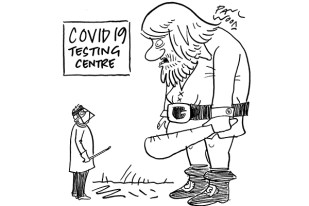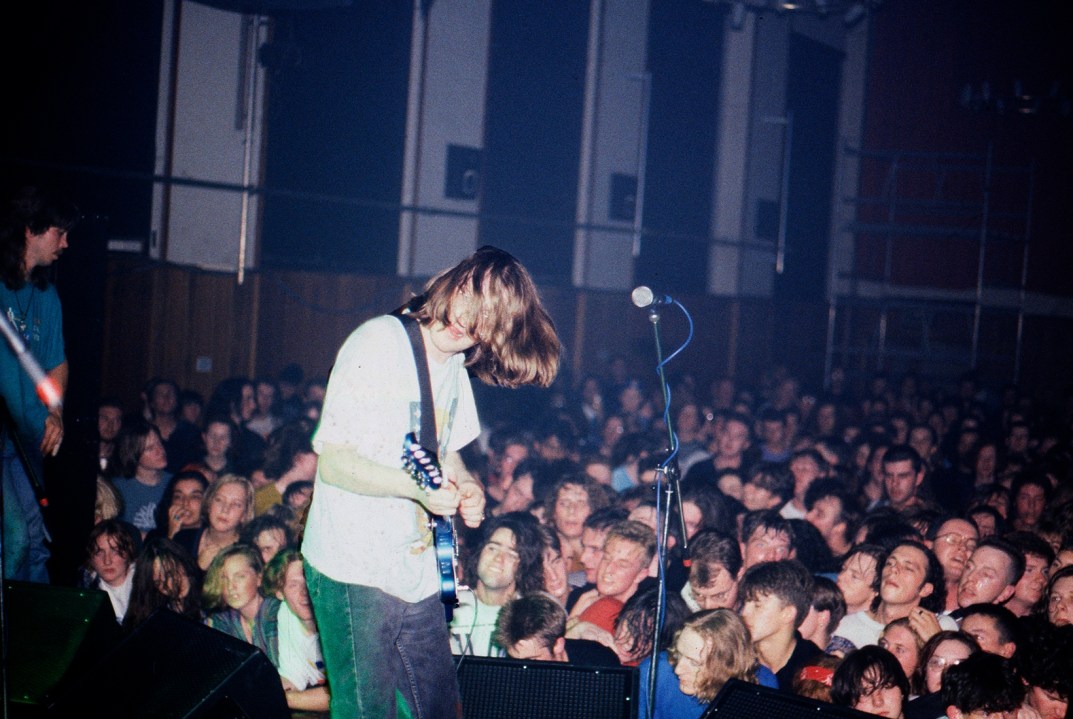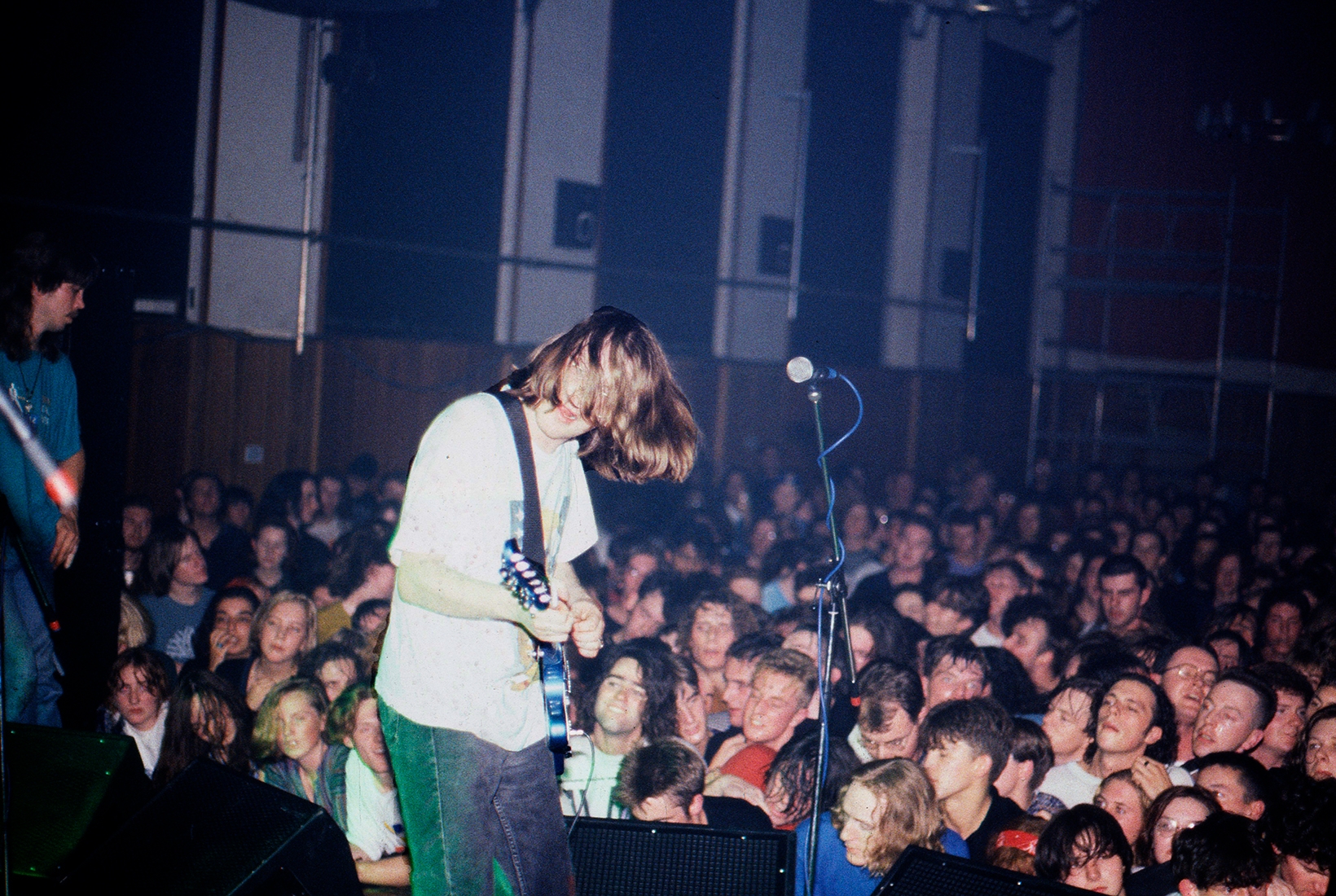In Teenage Superstars, a long and slightly exhausting documentary about the Scottish indie scene of the 1980s and ’90s, there was a moment when a man revelling in the name of Stephen Pastel — his real name is Stephen McRobbie, and he must be pushing 60 now — was described as ‘the mayor of the Scottish underground’.
Such a position — even one, as this, necessarily unelected — would be all but impossible to occupy today. With the internet and democratisation of music — its creation, its distribution, its consumption — has come the fallowing of what were once its most fertile fields: the local scenes created and inhabited by small numbers of interconnected people and encouraged by confident tastemakers — such as Pastel.

For the bands featured in Teenage Superstars, it wasn’t about being heard. Though there were ambitious people in Glasgow and its suburbs, and in Edinburgh, their music was more about a shared endeavour, a bond between friends. And the film gives you a sense of the importance of the tiny scraps of infrastructure that could nourish that endeavour: an independent record label, a club night, a driven individual. Now, with instant communication, there is no need to rely on your locality: your music is as likely to be heard by someone 5,000 miles away from your home as someone 500 yards away.
From these few dozen friends came scores of groups. Some of them became famous for a period of time — Primal Scream, the Jesus and Mary Chain, the Soup Dragons. Some forged lasting and well regarded careers — Teenage Fanclub, the Pastels. Some trundle on in the underground — BMX Bandits, regarded by everyone, it seems, as the ur-group of this scene.
The bonds of friendship were the most charming elements of the film — 40 years after meeting in Bellshill, the Fanclub’s Norman Blake, the Bandits’ Duglas Stewart and the Soup Dragons’ Sean Dickson clearly still adore each other. But not everyone got on so well. The former members of Primal Scream clearly fell out of love with their singer, Bobby Gillespie, fairly quickly. Gillespie himself, along with the Reid brothers of the Jesus and Mary Chain, were significant omissions from the list of interviewees. Perhaps, as is so often the way with the most successful graduates of any scene, they refuse to identify with the very thing that propelled them in the first place.
The same elements popped up, in shorter form, in a brief documentary about Halifax, Nova Scotia, called The Next Seattle: A Maritime Rockumentary. Where Glasgow had the Splash One club night, Halifax had the Double Deuce Tavern; where the Scottish bands had Stephen Pastel, Halifax had the promoter Greg Clark. Both, too, shared distance from the centres of their nation’s music industries: there’s nothing like isolation to let music find its own distinctive character. And the media played key roles in both: an NME article by Julian Cope about forgotten psychedelia was a touchstone for the Scottish bands, while the worldwide music press hyped Halifax with unrelenting enthusiasm.
Halifax was briefly, in the mid-1990s, the recipient of that most meaningless of titles: Rock’n’Roll Capital of the World. If that seems unlikely given the list of bands involved — the giants here were Sloan, in a Lilliputian world of Jale, Thrush Hermit (Thrush Hermit!), the Super Friendz and Eric’s Trip — then bear in mind this came at a particular time, when the major labels were looking for whatever might pass for the next Nirvana. This was also a time when the Sub Pop independent label, flush with money from passing Nirvana off to Geffen, was signing anything that moved, with usually disastrous results. In the mid-1990s, in fact, Sub Pop must have been responsible for more mediocre bands being able to feed and house themselves than any other record label in history. As one local DJ observed, it all became so overheated that at one point a representative of Levi’s called him up to ask if she could come and hang out, just to get inspiration from the Nova Scotian vibes.
Probably because it wasn’t hyped as a group, the Scottish scene has remained a constant through the decades — Teenage Fanclub remain truly beloved — while Halifax dissolved once exposed to the light of the global music industry. But watching both films made me feel happily nostalgic for an era of self-created worlds, when music was more than a click away. They reminded me of the club night I went to — nights like Kaleidoscope Pop in Leeds — where you knew everyone within a 20-mile radius who owned the first Modern Lovers records would be there, Chelsea boots polished and ready to dance. Like mushrooms, sometimes things grow best in the dark.







Comments